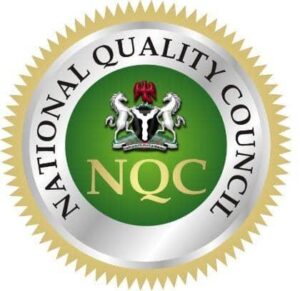
Local, state and federal authorities must work together to optimise the gains in cassava value chain, considering the prevalence of the crop across Africa.
Chairman of the National Quality Council, Osita Aboloma, made the assertion at the start of a three-day Africa Cassava Conference in Abuja.
He noted it was important to develop the cassava value chain for food security, nutrition and industrialisation purposes.
Local, state and federal governments have different roles in cassava cultivation and processing—from making land available and providing extension services and legal instruments to formulating policies, implementing, reviewing and coordinating them.
Aboloma highlighted the different roles in his presentation, titled “The Role of National Governments and National Quality Infrastructure Institutions in the Development of the Cassava Value Chain”
He stated further that African National Governments in collaboration with other arms and the private sector have critical roles to play in promoting local fabrication of machinery and equipment for use along the Cassava value chain to enhance micro, small and medium scale enterprises development, job as well as wealth creation, food security and industrialization on the Continent.
But optimising cassava value chain in Africa largely depends on the efficiency and effectiveness of the national quality infrastructure, he said.
They are the standards development and harmonization to provide necessary quality benchmarks for all the derivates of the crop; conformity assessment, including product and facilities inspection, testing, verification, and certification, to confer third-party quality assurance.
Others include international accreditation and mutual recognition agreements to guarantee the acceptance of the outcomes of the conformity assessment processes across national borders and metrology, to provide traceability, accuracy and consistency of measurement equipment, thus providing validity of measurement readings in trade and commerce along the cassava value chain.
“The efficiency and effectiveness of the various institutions hosting the National Quality Infrastructure in both the public and private sectors are thus critical to the development of the Cassava value chain in Africa,” he said.
Cassava is grown across all state of Nigeria and is a staple for millions of Nigerians.
It has several domestic, food and industrial purposes among which are the production of ethanol; industrial starch, cassava flour, sweetener and glucose syrup—which are major derivatives that are raw materials to numerous utility items with limitless domestic and export potentials.
Minister of Agriculture and Food Security, Senator Abubakar Kyari stressed Nigeria’s determination to take advantage of being the largest producer of cassava in the world to substitute large quantity of imported wheat flour, corn starch and bio-oil with cassava flour, industrial cassava starch and ethanol, respectively.
The country hopes to achieve this by tackling the various challenges from the level of activities in production, processing or marketing, including the 2–3-year cycle of glut and scarcity that causes fluctuations in price of the commodity, the minister said.
But the high cost of flash dryer continues to hamper production of high-quality cassava flour.
High level maintenance and inefficiency of locally fabricated flash dryers also affect the quality of the output, Kyari noted.
He advocated continued sensitization and training of stakeholders on the use of 20% HQCF in bread baking and other confectionaries; need for small scale/cottage flash dryer; improved locally fabricated flash dryers for improved quality of the HQCF as a way forward in the subsector.
“Providing good quality cassava derivatives will facilitate increase in local and export demand of the product leading to enhanced efficiency and production of the crop,” he said.
“The outcome of the conference will no doubt bring about increase in the average yields in cassava; enhance stakeholders’ revenues; incorporate quality control inspection and certification systems; encourage appropriate technology for rapid multiplication of the cassava and create jobs and wealth for the Nigeria citizens,” he said.
 The Commerce Africa African Reneissance
The Commerce Africa African Reneissance


